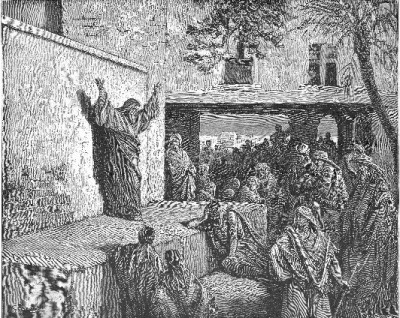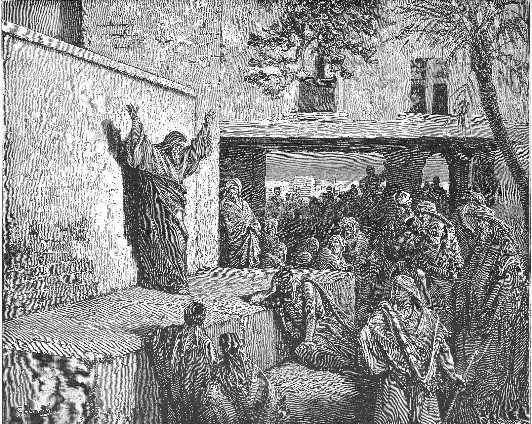
The recent debacle about the (Jewish, day-school alum) Princeton freshman who claims he “checked his privilege” dominated my social media network for a good two weeks. A few people came out in his support, but most people – myself included – were furious at his complete inability to consider the advantages he may have had as such. The willful blindness was maddening – as was his claim of moral superiority.
It made me think of teshuvah– the Jewish method of repentance and recognition of past sin. At first, it was simply in the context of Tal Fortgang himself: clearly, he had completely failed at teshuvah in a number of regards – in checking his arrogance or realizing that he may have hurt someone’s feelings. And then I came to bring it more widely – starting at myself.
Because I, too, have failed to check my privilege. I, too, have said racist, classist, and sexist things. And I too, have done and must continue doing teshuvah.
Part of repentance, of course, is coming to terms with your misdeeds– unwitting and witting. In some cases, I am ashamed to admit that I’ve said some pretty awful things – racist and sexist – as jokes. In other cases, I said something I considered innocent – but was not really – just as others had done before me. In order to repent, it is necessary to grasp the breadth of what has been done – and to do so again if you backslide. It’s not easy to admit that you’ve said bad things.
And then there’s the part that’s understanding the cause. I am white – yes, most Ashkenazi Jews are white; I am an upper-middle-class cisgender male, so I have privilege on several axes. (I’m also a queer member of a religious minority, so in some ways I do not.) And it is hard, when one is privileged, to remember that other people don’t necessarily benefit from the same advantages you do. Even if I have been very hard working, the color of my skin has basically gave me a bit of a boost – and also perhaps shields me from understanding the consequences of what I say. Engaging with the privilege which has caused my misdeeds is therefore central to my teshuvah.
In learning to check my privilege – in this process of teshuvah – I have also come to think about wider questions of privilege. What, for example, of questions of privilege in the Jewish community? It is all well and good to become more welcoming of Jews of color, but you have not done teshuvah if you still ask every brown person who comes to your synagogue when they converted. Instead of criticizing those who do not send their children to day schools, why not discuss how their exorbitant cost makes attendance for many Jewish children impossible? Also, why is almost the entire administration of Jewish Voice for Peace Ashkenazi?
We need to discuss that we’re often privileged in the first place. As my editor Derek Kwait noted in a recent article, it’s time for Ashkenazi Jews to start remembering “just how white we’ve become.” Continued reminders of our past suffering are not going to help us undo the Occupation or stop saying racist nonsense.
In addition, teshuvah requires an ability to accept critique– just as privilege-checking requires an ability to listen to the voices of others. It is useless to repent if you are unwilling to consider that your actions may hurt others – and to shield oneself from criticism is to block off most avenues for repentance in general. (This applies to a lot of situations.) Judaism requires us – in manners from Talmudic apology rules to the prophetic calls for return in Hosea and Isaiah– to listen to the critiques offered by our fellow Jews, and our fellow human beings.
In this sense, privilege-checking has the same requirements as other forms of teshuvah. It requires listening– and it certainly requires one to not determine the other person’s narrative or experience based on one’s own. More generally, one must also continually be able to accept criticism: no matter how much of an “ally” you are (also, let me remind you that you never have the right to call yourself that), you need to be able to accept that sometimes, you can do wrong. Teshuvah requires the correction of a repeated misdeed. Privilege-checking does too.
I fundamentally disagree with anyone who claims that this concept is cliché or a has-been. It is neither a cliché nor a has-been if you’re on the wrong end of the privilege stick – as a gay man I can tell you that homophobia is very much alive and real today. A term does not make the underlying situation untrue. Sure, it is arguable that the term “privilege” has become a bit abused – especially by those who have no idea what it means. It is also true that Jews do not always have privilege in the United States – as evidenced from struggles for time off due to holidays to dealing with crazed missionaries. (Yes, crazed—this has happened to me before.) That still does not undo the fact that if you’re white, you don’t get to tell black people when you’re done checking your privilege.
Teshuvah does not end, because as human beings to whom God gave free will, we continue to have the capacity to sin. Thus, in checking privilege as teshuvah, one cannot simply stop and declare that one’s privilege is checked. Privilege takes different manifestations and different consequences throughout one’s life, and it is incumbent that one continue to consider it. To simply declare that it is checked – as Tal Fortgang did – and move on is to deny the need to make real change in behavior or attitude in the first place. And that, dear friends, is hardly Jewish values.
Jonathan P. Katz is a student at the University of Chicago.

